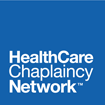What We Hear and Say: Spiritual Assessment and Documentation
Course Author: Brent Peery, BCC
This course, What We Hear and Say: Spiritual Assessment and Documentation, discusses the importance of chaplains and spiritual care providers incorporating into their practice an intentional, informed, and skilled assessment process, along with thorough and clear documentation of their chaplaincy and spiritual care.
By the end of this course the learner will be able to:
- Demonstrate knowledge and understanding of the differences and methodologies of spiritual screening, spiritual history, and spiritual assessment
- Demonstrate knowledge with one accepted model of spiritual assessment and apply the model appropriately with patients and families within the required time frame of setting
- Effectively articulate the spiritual, religious cultural, existential, emotional, and social needs, resources, and risk factors assessed as well as identify any needed referrals
- Understand and demonstrate the characteristics of spiritual reassessments.
- Demonstrate understanding of the importance of documentation and the requirements of organizational and regulatory guidelines.
- Summarize best practice for chaplaincy and spiritual care documentation
Course Outline
- Introduction
- Definitions
- Current State of Chaplaincy/Spiritual Care Assessment
- The Case for Conscious Chaplaincy Assessment
- Assessing Assessments
- Assessment Formats
- General Observations
- Assessment Models
- Choosing an Appropriate Spiritual Assessment Model
- Peery’s Approach
- Concluding Thoughts on Assessment and an Example
- An Overview of Chaplaincy/Spiritual Care Documentation
- Documentation Models
- Summary
- References
Number of Continuing Education Hours: 20
Credit towards Board Certification Requirements: 1
Aligns with the following Quality Indicators in What is Quality Spiritual Care in Health Care and How Do You Measure It? (HCCN. 2016).
- Structural Indicator 1.A. Chaplains as certified or credentialed spiritual care professional(s) are provided proportionate to the size and complexity of the unit served and officially recognized as integrated/embedded members of the clinical staff.
- Process Indicator 2.A. Specialist spiritual care is made available within a time frame appropriate to the nature of the referral.
- Process Indicator 2.B. All clients are offered the opportunity to have a discussion of religious/spiritual concerns.
- Process Indicator 2.C. An assessment of religious, spiritual, and existential concerns using a structured instrument is developed and documented, and the information obtained from the assessment is integrated into the overall care plan.
- Process Indicator 2.E. Families are offered the opportunity to discuss spiritual issues during goals of care conferences.
- Process Indicator 2.G. End of life and Bereavement Care is provided as appropriate to the population served.

